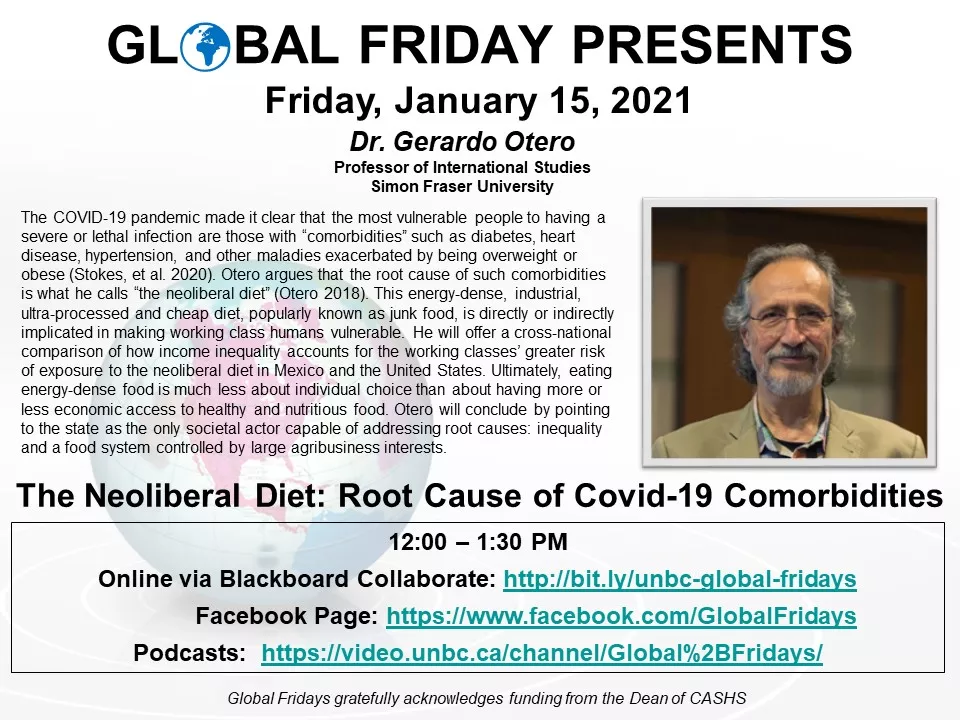The Neoliberal Diet: Root Cause of Covid-19 Comorbidities

Global Friday Presents
Dr. Gerardo Otero
Professor of International Studies
Simon Fraser University
ABSTRACT: The COVID-19 pandemic made it clear that the most vulnerable people to having a severe or lethal infection are those with “comorbidities” such as diabetes, heart disease, hypertension, and other maladies exacerbated by being overweight or obese (Stokes, et al. 2020). Otero argues that the root cause of such comorbidities is what he calls “the neoliberal diet” (Otero 2018). This energy-dense, industrial, ultra-processed and cheap diet, popularly known as junk food, is directly or indirectly implicated in making working class humans vulnerable. He will offer a cross-national comparison of how income inequality accounts for the working classes’ greater risk of exposure to the neoliberal diet in Mexico and the United States. Ultimately, eating energy-dense food is much less about individual choice than about having more or less economic access to healthy and nutritious food. Otero will conclude by pointing to the state as the only societal actor capable of addressing root causes: inequality and a food system controlled by large agribusiness interests.
SPEAKER BIO: Gerardo Otero, a sociologist and political economist, is professor of international studies at Simon Fraser University in Vancouver, Canada. His work is about political economy of agriculture and food, civil society and the state in the Americas. He has published over 100 scholarly articles, chapters and books. He is the author of Farewell to the Peasantry? Political Class Formation in Rural Mexico (Westiview Press 1999, re-issued by Routledge in 2018). His latest monograph is: The Neoliberal Diet: Healthy Profits, Unhealthy People (University of Texas Press 2018). E-mail: otero@sfu.ca. Much of his work is available at: http://www.sfu.ca/people/otero.html.
Available through Blackboard Collaborate: http://bit.ly/unbc-global-fridays
Global Friday gratefully acknowledges funding from the Dean of CASHS.